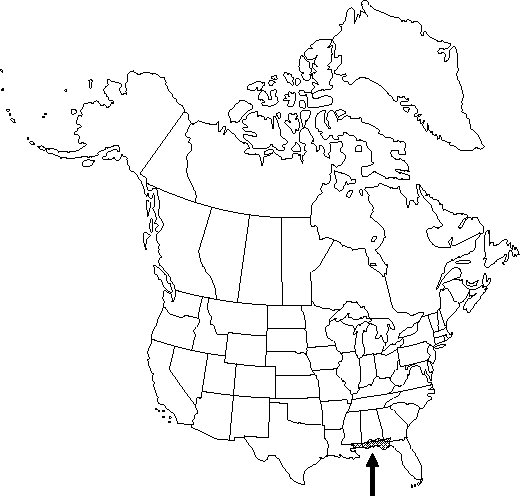Myrica inodora
Travels Carolina, 403. 1791.
Shrubs or small trees, evergreen, to 7 m. Branchlets reddish-brown and gland-dotted when young, glands colorless to white. Leaf-blade lacking odor when crushed, oblong-obovate to elliptic, 3.5-10.5 (-11.8) × 1.4-3.7 (-4.4) cm, leathery, base attenuate to cuneate, margins entire, rarely serrate distally, slightly revolute, apex acute to rounded; surfaces abaxially pale green, glabrous, sometimes with a few scattered hairs, adaxially dark green, shiny, glabrous, both surfaces gland-dotted, pitted; glands minute, colorless or white. Inflorescences: staminate 0.7-2.2 cm; pistillate 0.4-4 (-5) cm. Flowers unisexual, staminate and pistillate on same plants. Staminate flowers: bract of flower shorter than staminal column, margins opaque, densely ciliate; stamens mostly 6-10, as few as 3 in more distal flowers. Pistillate flowers: bracteoles persistent, 4, obscure in fruit, not accrescent or adnate to fruit wall, glabrous except for ciliate margins; ovary densely villous. Fruits globose-ellipsoid, 4-8 mm; fruit wall densely pubescent, obscured by enlarged, glandular protuberances and thin (usually) coat of white-gray wax.
Phenology: Flowering late winter–early spring, fruiting mid summer.
Habitat: Coastal pineland swamps, swamp margins, bogs, pond edges, and stream banks
Elevation: 0-10 m
Distribution

Ala., Fla., Ga., La., Miss.
Discussion
Selected References
None.